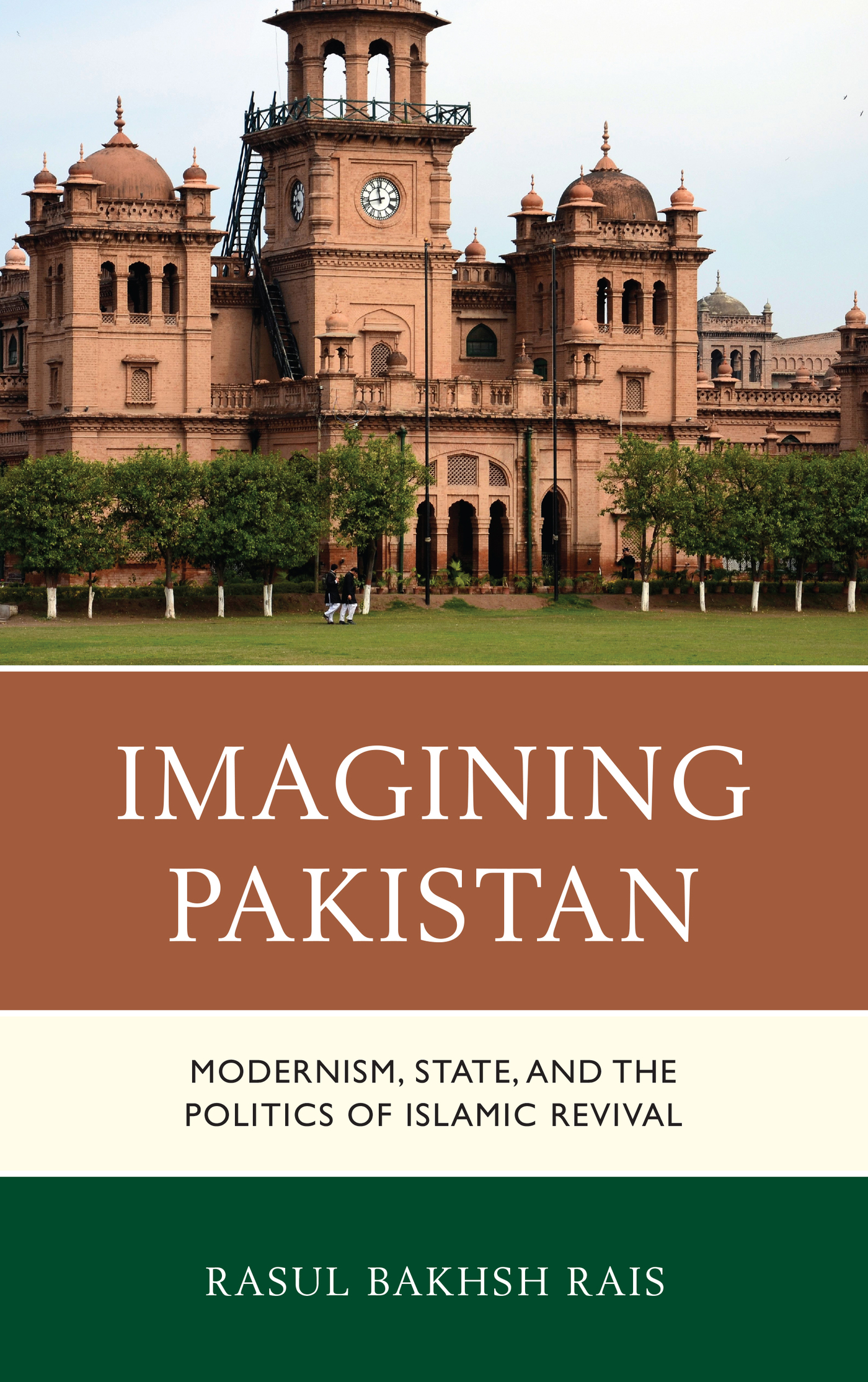Imagining Pakistan
Imagining Pakistan
Modernism, State, and the
Politics of Islamic Revival
Rasul Bakhsh Rais
LEXINGTON BOOKS
Lanham Boulder New York London
Published by Lexington Books
An imprint of The Rowman & Littlefield Publishing Group, Inc.
4501 Forbes Boulevard, Suite 200, Lanham, Maryland 20706
www.rowman.com
Unit A, Whitacre Mews, 26-34 Stannary Street, London SE11 4AB
Copyright 2017 by Lexington Books
All rights reserved. No part of this book may be reproduced in any form or by any electronic or mechanical means, including information storage and retrieval systems, without written permission from the publisher, except by a reviewer who may quote passages in a review.
British Library Cataloguing in Publication Information Available
Library of Congress Cataloging-in-Publication Data Available
ISBN 978-1-4985-5395-7 (cloth : alk. paper)
ISBN 978-1-4985-5396-4 (electronic)
 TM The paper used in this publication meets the minimum requirements of American National Standard for Information Sciences Permanence of Paper for Printed Library Materials, ANSI/NISO Z39.48-1992.
TM The paper used in this publication meets the minimum requirements of American National Standard for Information Sciences Permanence of Paper for Printed Library Materials, ANSI/NISO Z39.48-1992.
Printed in the United States of America
I dedicate this book to my mothers, Nuri and Hurmat, for their
unbounded love, selflessness, and care.
Preface
A continuing debate about what has gone wrong with Pakistan, the second largest Muslim majority state with a population of nearly 200,000,000 and nuclear power, agitated me and resultantly developed my interest in writing this book. There are many symptoms of things having seriously gone wrong, but three indicators will suffice to predicate the argument. First, the military generals have staged four coups, abrogated the constitutions, wrote their own ones, or amended the 1973 Constitution to suit their power interests, subverted institutions, including the judiciary and fragmented the political parties to create their political faade. The third military regime (19771988) hanged a popular prime minister Zulfikar Ali Bhutto (19281979), and the fourth (19992008), humiliated another popular prime minister, Nawaz Sharif, convicted him on laughable charges of hijacking a passenger plane and forced him into exile. More laughable is the fact that the Chief of Army Staff General Pervez Musharraf took over the country when Prime Minister Sharif removed him from power in October 1999. When not in power, the military has continued to exercise extraordinary influence over critical foreign and domestic policy issues that makes Pakistans transition to democracy vague, troublesome, and at best incomplete. All post-military regimes have been handicapped by the lingering, stubborn, and deep legacies of the military regimes.
Second, the political class of Pakistan has failed to rise to the occasion and provide honest, effective, and visionary leadership to address countrys complex problems accumulated both under the military and populist civilian regimes. When given power and opportunity the dynastic political class running the political parties as family businesses have disappointed their electoratethe hapless, poor populations. They have weakened institutions of law and accountability and have shown apathy towards institutionalized corruption that they have often used to benefit themselves and aligned political families. The sad fact is that while the country is at the top of the list of corrupt countries, hardly any political leader has been convicted on charges of corruption. The culture of corruption has seeped throughout the society, including media, bureaucracy, businesses and even civil society organizations, creating impunity for the powerful sections of the country. The pervasive culture of corruption has caused institutional decay, deterioration of values and disorientation of society, stunting growth of creative national energies, innovation, value of hard work, and recognition of merit.
Third, political violence, religious extremism, and ethnic conflict have become enduring problems of the state and society. These are some of the outcomes of elite corruption, states institutional decline and wrong choice of national security policiesdirect and indirect intervention in the Afghan wars. The society has become polarized along ethnic, sectarian, and political lines, making it hard to build national consensus on critical national issues. These are the issues that determine the success and failure of nations.
Finding a clear vision of state and nation building in the context of post-colonial Islamic states has been both difficult as well as controversial, but in the case of Pakistan, persistence of crisis in civil-military relations and confrontational politics among the political partiesbetter to be termed as factionsare some of the factors that have eroded vital elements of political modernity inherited from the British colonial rule. The central argument of the book is that the creation of Pakistan was a result of Muslim modernism that greatly shaped an epic struggle for identity, nationalism, and empowerment of the Muslim communities, while smoothly incorporating the non-Muslim sections. The focus is on political modernity defined as inclusive politics, equal rights as citizen within a constitutional framework and shared sense of political community among diverse ethnic and religious groups of the constituent regions of present-day Pakistan. My argument is that this was the ideal the founders had in mind, to pursue an independent Pakistan.
The ideal of an essentially democratic, constitutional and pluralistic Pakistan, countered resistance from the Islamists in the early years who wanted an Islamic state in quest for recovering the lost mythical glory of Islam and the Muslims. However, the real threat to political modernism came from the military that wanted to create a strong, secure and development oriented Pakistan through guided, controlled, and graduated democracy. All military regimes have pursued economic developmentalism in the belief that it would produce an appropriate, better and more durable and fertile social ground for the development of genuine democracy. Contrary to their good intentions and strategy, interventions by the military in politics and frequent deviations from the foundational republican ideas for decades, have often left Pakistan in the rough sea of power struggles and have created and entrenched multiple polarizations. The threat of radical Islam and terrorism are simply consequences of one big failurenot resting and building Pakistan on the foundations of politically liberal ideas of its founders. These consequences have never been so sharp and violent anytime in Pakistans history than what we have seen and experienced during the last two decades.
This book is a modest attempt to explore how Pakistans national identity has become conflictive and how this populous Muslim country at the juncture of three strategic regions, and occupying a critical geopolitical space can be stabilized, secured and put on the course of progress. There are some hopeful signs in the restoration of parliamentary democracy, rise of middle class, freeing of media and its growth and emerging national consensus on countering terrorism and extremism. I argue that mere resilience of the society, or use of military means to defeat terrorism may not be enough for a stable and peaceful Pakistan. What the country may require is a robust, effective, and consistent effort to reengage with the founding ideas of political modernity and rebuild state institutions that would support a moderate, tolerant and pluralist society. Such a society will find that Islam and modernity are not conflictive but converge in support of universal values of peace, tolerance, humanity, and progress. This will certainly make Pakistan at peace within and without.
Next page
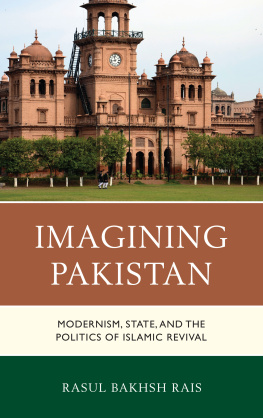
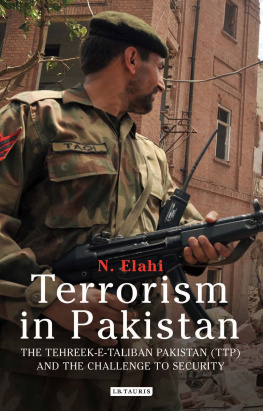
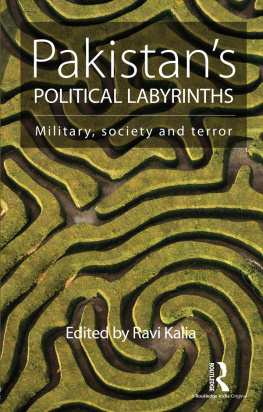

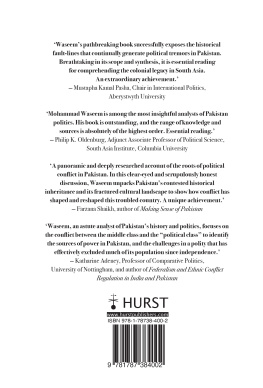

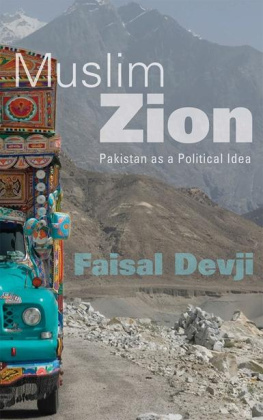

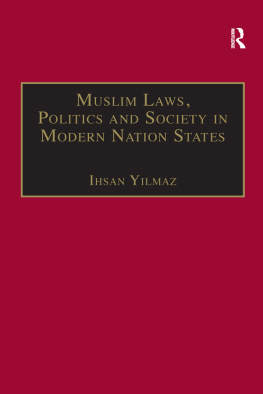
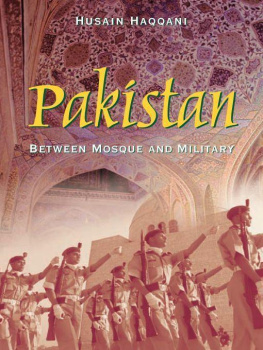
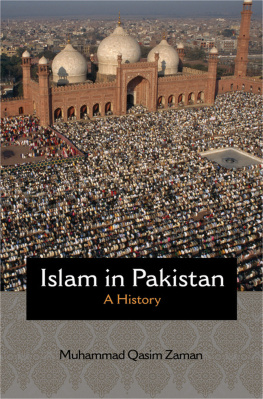
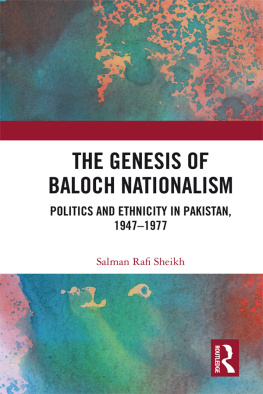
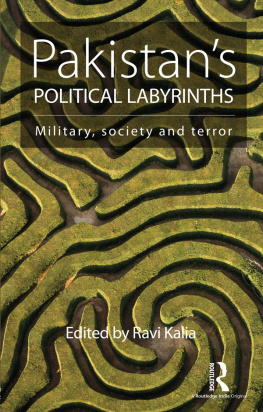
 TM The paper used in this publication meets the minimum requirements of American National Standard for Information Sciences Permanence of Paper for Printed Library Materials, ANSI/NISO Z39.48-1992.
TM The paper used in this publication meets the minimum requirements of American National Standard for Information Sciences Permanence of Paper for Printed Library Materials, ANSI/NISO Z39.48-1992.